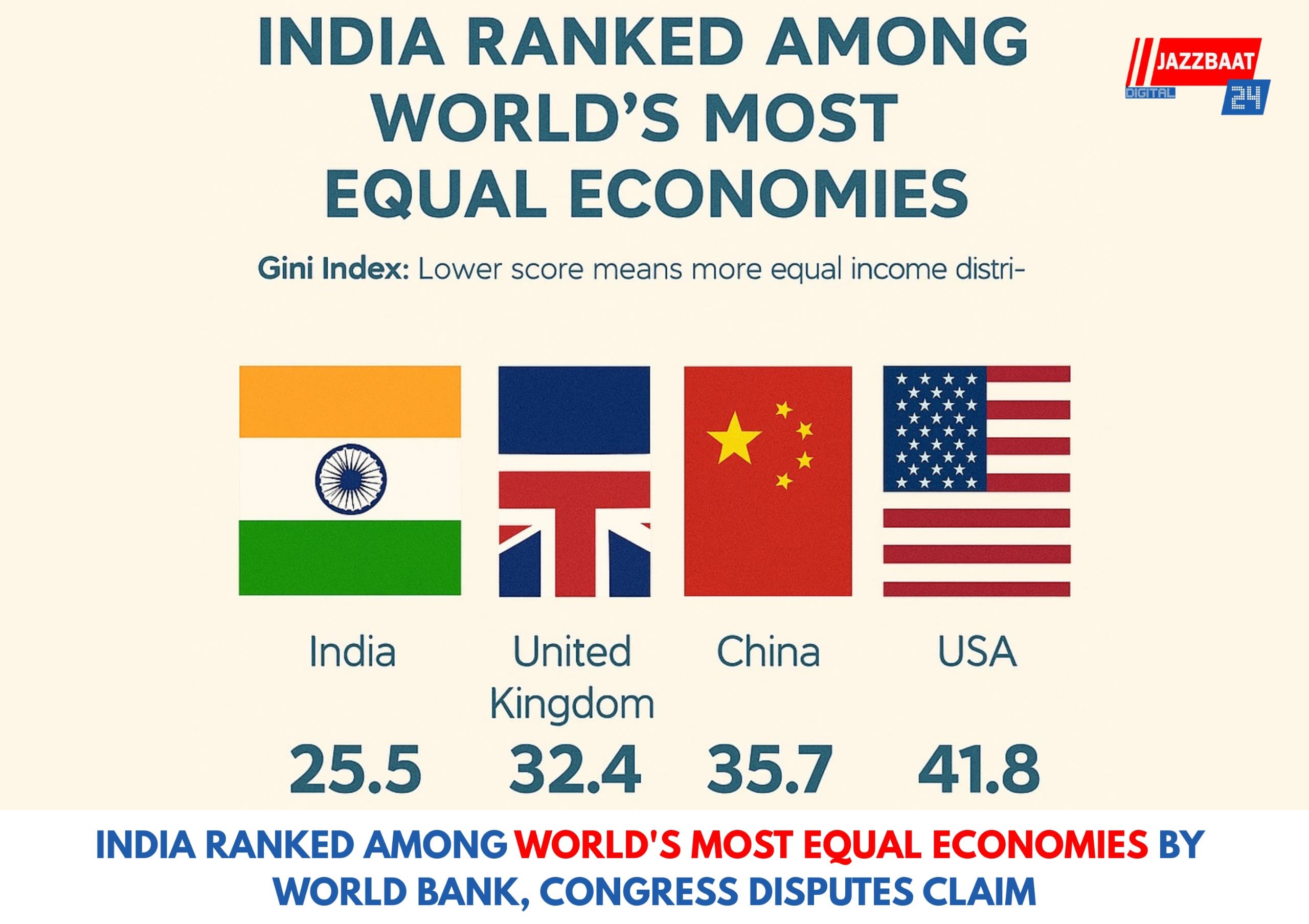
Dipanjan Mondal
6 July, 2025:
India is quickly and steadily closing the gaps within its society. A recent World Bank report shows that the country has become the fourth-largest economy in the world and one of the most equitable nations globally.
India has surpassed the United States, China, and the G7 and G20 nations to achieve this rank. Its Gini Index stands at 25.5, placing it behind only three countries: the Slovak Republic, Slovenia, and Belarus.
The report reveals that extreme poverty fell to 2.3 percent in 2022-23. Between 2011 and 2023, 1.71 million Indians moved out of extreme poverty.
The Gini Index measures how evenly income or wealth is shared in a country. A score of 0 means perfect equality, while 100 represents maximum inequality. India’s score of 25.5 puts it in the 'moderately low inequality' category, similar to many wealthy European nations.
In contrast, China’s Gini Index is 35.7, and the United States has a score of 41.8, indicating much higher inequality in those countries.
One of the main reasons for India’s improved equality is the sharp decline in extreme poverty, defined globally as living on less than $2.15 per day. The World Bank reports that extreme poverty in India fell from 16.2 percent in 2011-12 to just 2.3 percent in 2022-23, lifting 171 million people out of poverty.
Rural poverty dropped from 18.4 percent to 2.8 percent, while urban poverty fell from 10.7 percent to 1.1 percent, reducing the rural-urban poverty gap from 7.7 to 1.7 percentage points.
This impressive progress shows significant poverty reduction and targeted government welfare programs. As India balances rapid economic growth with social equity, its approach offers lessons for the world.
However, Congress dismissed the central government’s assertion that "India is among the world’s most equal societies" on Sunday.
This response came a day after the government pointed to India’s Gini Index score of 25.5, which ranks it fourth globally for income equality, in a press release from the Ministry of Information and Broadcasting.
Congress general secretary Jairam Ramesh provided a thorough response, stating, “No country with a poverty rate of 28.1 percent can justifiably claim to be one of the most equal societies in the world.”
He said in a statement on April 27 that Congress had raised key concerns highlighted by the World Bank in its report. “These concerns are still relevant, and any attempt to address the report must take them seriously,” the Congress leader added.
He noted that the World Bank report points out high wage disparity in India, with the median earnings of the top 10 percent being 13 times higher than those of the bottom 10 percent in 2023-24.
Ramesh also claimed that increasing inequality is now deeply rooted in India's economic growth and trajectory, driven by the BJP-led government’s policies and the widening gap between the privileged few and the many disadvantaged individuals.